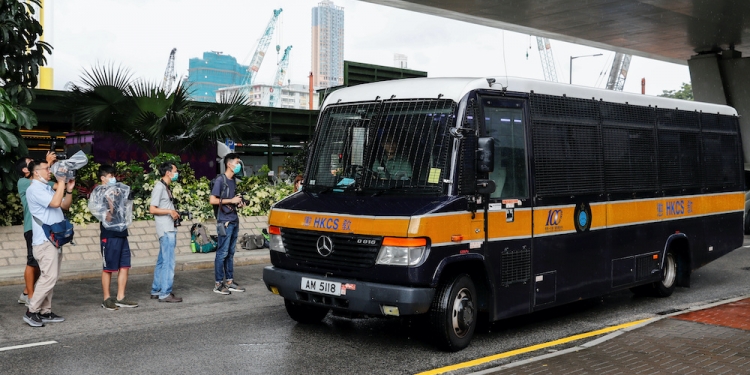Some of the biggest names in tech, including Google, Facebook and Twitter, announced on 6 July a change in policy and have paused the process of granting data request from the Hong Kong government. The tech giants are pushing back against a new security law that came into effect on 1 July as the primary reason for this change.
Across the board, many of the companies issued similarly worded statements, expressing concern over the developments in Hong Kong. In a report by Recode, Facebook specifically cited concerns over the protection of free speech as the reason that it pausing requests for user data. Apart from its main social media app, Facebook also owns WhatsApp and Instagram.
The Verge cited a Facebook spokesperson who said: “We believe freedom of expression is a fundamental human right and support the right of people to express themselves without fear for their safety or other repercussions.”
The spokesperson added that Facebook has a process for reviewing government requests, which takes into account its own policies and local laws as well as international human rights standards.
Twitter also issued a statement saying that it is currently reviewing the new law to assess the implication. The company added that many terms of the law are “vague and without clear definition”. “We have grave concerns regarding both the developing process and the full intention of this law.”
Similar statements were issued by the secure messaging app Telegram, which was extensively used by Hong Kong protestors. With the implementation of the law, many pro-democracy supporters have begun scrubbing their online accounts of any pro-democracy posts.

Legions of users have sought safer ways to communicate and have flocked to encrypted messaging apps like Signal. A check on Similarweb shows that Signal is now the most downloaded app on both the Apple’s App Store and Google Play Store. Signal said in over Twitter in a rather mocking manner that it has never turned over user data to the Hong Kong police as it doesn’t have any to begin with.
Hong Kong has historically enjoyed a degree of autonomy within China, under the “one country, two systems” principle. Following a proposed bill in Hong Kong last March that would have allowed the extradition of suspects to mainland China, protests erupted on the streets of the city.
Tech companies have also long operated freely in Hong Kong thanks to these rules as Internet access in Hong Kong was unaffected by the “Great Firewall” imposed in mainland China, which blocks Google, Twitter and Facebook.
Now those days are numbered as the security law is the latest measure taken by the central Chinese government to tighten its grip around Hong Kong. Under the new law, it is unlawful to engage in “secession, subversion, organization and perpetuation of terrorist activities, and collusion with a foreign country or with external elements to endanger national security.” Hong Kong police have already arrested several protestors since the implementation of the security law.
The new law also applies online and gives authorities the power to remove posts though it is unclear how officials will enforce the law. According to the New York Times, the Hong Kong government said:
“If an internet company failed to comply with a court order to turn over data in cases related to national security, it could be fined almost $13,000 and an employee could face six months in prison. If a person is ordered to remove a post and he or she refuses, that person can face a jail sentence of one year. A separate provision also gave the police wide powers to order the deletion of internet posts that threaten national security.”
It should be noted that social media platforms often apply localised restrictions to posts that violate local laws but not their own rules for acceptable speech. The companies have also helped provide private user information in response to valid court orders, this depends on the legal process in the countries in which they operate.
Also, the companies did not say whether they will ultimately decide to cooperate with parts of the law. They only have temporarily stopped fielding government requests. Whether they decide to comply or resist further, there is no denying that these are challenging times for Internet companies in Hong Kong.








